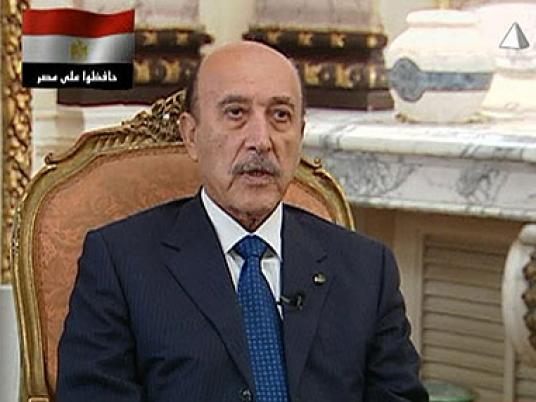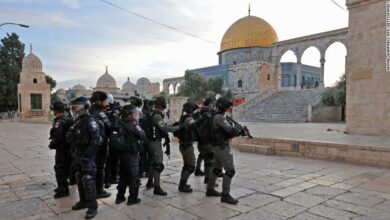
Parliament has decided to convene on Wednesday to discuss the draft law that was submitted by MP Essam Sultan of the Wasat Party banning all those who worked under Mubarak in the last ten years of his rule in leadership positions or the dissolved National Democratic Party from assuming the office of president, vice president or prime minister for 10 years as of Mubarak’s resignation on 11 February 2011.
Hussein Ibrahim, head of the Brotherhood’s Freedom and Justice Party’s parliamentary committee, called for carefully studying the draft law in order to ensure that its constitutionality is not challenged, thereby postponing the elections.
“The Muslim Brotherhood deputies shun discussing the law so that they are not accused of paving the way for their own candidate,” said Ibrahim.
MP Amr Hamzawy requested that the law also ban them from running for Parliament or local councils, while MP Ahmed Saeed, leader of the Free Egyptians Party, feared the draft would be construed as specifically targeting a particular candidate.
For his part, MP Amr el-Shobaki feared the draft law would be a deviation from the path of democracy into a kind of discrimination.
“The draft is unconstitutional,” said Mohamed Attiya, minister of parliamentary affairs. “Only a court ruling decides this matter.”
The members of the legislative committee denied the claim by MP Ihab Ramzy that the committee had not reached a quorum when it voted on the law.
Meanwhile, six presidential hopefuls have called on Field Marshal Hussein Tantawi, head of the ruling Supreme Council of the Armed Forces, to endorse the law on banning former regime symbols from running in the presidential elections immediately after it is passed by Parliament.
Candidates Abdel Moneim Abouel Fotouh, Mohamed Selim al-Awa, Ayman Nour, Hesham al-Bastawisy, Amr Moussa and Abul Ezz al-Hariry agreed on the constitutionality of the law in a meeting on Tuesday.
They also called on the Presidential Elections Commission to examine the signatures submitted by Omar Suleiman and Ahmed Shafiq, two former regime officials, claiming that they ordered government officials and army and police personnel to collect them.
The candidates agreed to meet late April in order to work together on achieving the national goals of the revolution, but denied that they are in permanent session until the crisis of the other candidates is resolved.
Translated from Al-Masry Al-Youm




